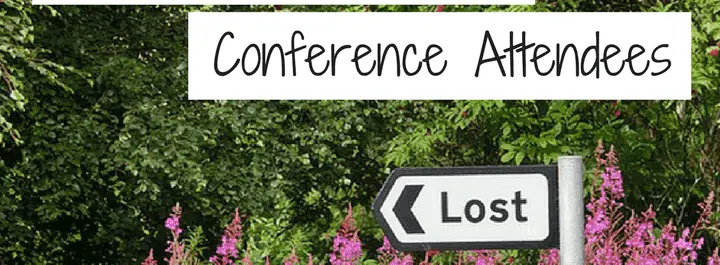The following article is archived and is no longer considered up-to-date. Please interpret its content in the context of the publishing date.

ARCHIVED
10 Biggest Struggles of Conference Attendees
Read a summary using the INOMICS AI tool
Academic conferences can be productive, helpful, and even fun. But they're not without their challenges! Here are some struggles which conference attendees have to deal with:
1.Finding your way around an unfamiliar city
When you arrive at your conference destination, you'll need to navigate the public transport system to find your way to your hotel. You'll need to work out where the conference location is, and how you get there – all of which can be a challenge in an unfamiliar city where you might not speak the language.
2.Managing your timetable
With a ton of talks, presentations, workshops, discussion sessions, and more, it's not easy to manage your time at a conference so you can get everything you want done. The timetable in the conference guide will be an essential tool for you to make sure you know the time and location of all your conference events.
3.Dealing with nerves
Presenting at a conference can be a nerve-racking experience. With a big feeling of pressure and the need to show your research to your peers in a positive way, it's common to struggle with nerves before conference presentations. This is particularly true if you're early in your career and you haven't had much experience with presenting. But the good news is that there are lots of techniques you can try to help you deal with your nerves.
4.Networking effectively
You know how important it is to create a professional network of fellow researchers, and conferences are the ideal location for getting to know other people in your field. But it can be tough to maintain enough energy to be networking all throughout a conference. Give yourself a break now and then to casually catch up with old friends or colleagues.
5.Balancing professional events with social events
Working all day and then going out for dinner and drinks each night can be a lot of fun – and the social events at conferences can be as important and valuable as the academic events. Trying to find a balance between not missing out on social time but also being alert and focused enough to perform in academic settings isn't easy, however.
6.Getting enough sleep
With so much to do at every conference, one common sacrifice that's made is the full 8 hours of sleep per night. It is possible to run for a couple of days on just a few hours of sleep a night, but it's not ideal. Being constantly tired will only exacerbate all these other problems, so try to make sure you're reasonably well rested while attending a conference by giving yourself enough time to sleep.
7.Conflicting scheduled events
It's inevitable that sometimes, especially at big conferences, some events will be in conflict. It's common for multiple sessions on different topics to run in parallel during the conference time, so you might have to pick between two events you want to attend which are running at the same time.
8.Remembering everyone's name, research topic, and affiliation
You'll meet so many people at a conference, many of whom might be doing research which is related to yours, or work at an institution which you know. It's therefore helpful to be able to remember a little bit of information about each person you meet, like their name, research topic, and institutional affiliation. Conferences give out name badges to attendees which sometimes have affiliation listed too – and this is so helpful. But in the evenings, or in the later days of the conference when people forget to wear their badges, remembering all these details can be a struggle.
9.Engaging in productive discussions
Getting involved in debates and discussions after presentations is one of the most important ways in which knowledge is shared at conferences. But some discussions are more productive than others – those with mutually respectful conduct and participants who can communicate their ideas clearly. You never really know how helpful a discussion session will be until you attend it.
10.Moderating panels
Finally, one challenging job which is often overlooked at a conference is the task of moderating discussions. Moderation is not a skill which many academics are taught, or something that they think about much – but in fact, it's a role which requires careful planning and management. If you're moderating a panel, be sure to do some reading on moderation techniques before you go.
-
- PhD Program, Program, Postgraduate Scholarship
- Posted 1 week ago
PhD Program in Economics - 6 Fully Funded Scholarships
at Luiss Guido Carli University of Rome in Rome, Italy
-
- Postdoc Job
- Posted 5 days ago
Research Assistant (Postdoctoral Fellow) (f/m/d)
At University of Bremen in Bremen, Germany
-
- Postdoc Job
- Posted 1 week ago
Postdoctoral Researcher (all genders welcome)
At Georg-August-Universität Göttingen in Germany













